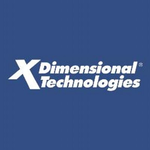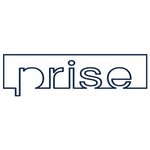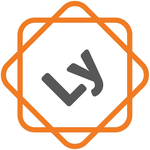Description

Nexsure Agency Management

PROMOS
Comprehensive Overview: Nexsure Agency Management vs PROMOS
Nexsure Agency Management and PROMOS are two distinct software solutions tailored towards different industry needs. Let’s break down each product with their primary functions, target markets, market presence, and differentiating factors:
Nexsure Agency Management:
a) Primary Functions and Target Markets:
- Primary Functions: Nexsure Agency Management is a cloud-based agency management system (AMS) designed for insurance agencies. Its core functions include customer relationship management (CRM), policy management, billing and accounting, document management, and reporting. It aims to streamline operations, enhance productivity, and improve customer service.
- Target Markets: Nexsure primarily targets independent insurance agencies and brokers. It caters to both small and large agencies seeking to improve efficiency and manage their operations more effectively.
b) Market Share and User Base:
- Market Share and User Base: Nexsure Agency Management is a competitive player within the insurance software solutions market. While it may not dominate as some of the more substantial traditional systems like Applied Epic or Vertafore, it is still a well-regarded contender, particularly for agencies looking for a cloud-based solution. Its user base includes a variety of agencies across North America, benefiting from its flexible and modular design.
c) Key Differentiating Factors:
- Comprehensive Cloud-Based Solution: Nexsure's cloud platform provides real-time access to data, facilitating better decision-making and enhanced collaboration.
- Flexibility and Customization: Known for its ability to tailor functionalities to specific agency needs, Nexsure offers a high degree of customization.
- User-Friendly Interface: The system is designed with an intuitive interface, making it easy for users to adapt and use efficiently.
PROMOS:
a) Primary Functions and Target Markets:
- Primary Functions: PROMOS is typically associated with real estate management solutions and property management software. Its functionalities include lease administration, facility management, financial performance tracking, and real estate portfolio management.
- Target Markets: PROMOS is directed at real estate companies, property managers, and investment firms that require robust tools to manage their real estate assets and portfolios efficiently.
b) Market Share and User Base:
- Market Share and User Base: PROMOS holds a distinct position within the real estate management niche. It may not have as broad a user base as some of the leading ERP systems, but it serves a specialized segment focusing on real estate and property management. Its adoption is more prevalent in regions where real estate industries need comprehensive management solutions.
c) Key Differentiating Factors:
- Industry-Specific Features: PROMOS is equipped with features uniquely tailored to the real estate industry, providing a specialized toolset for managing complex property portfolios and leases.
- Integration Capabilities: The software often highlights its ability to integrate with existing ERP systems, offering a cohesive solution for large organizations.
- Focused Expertise: PROMOS leverages extensive industry knowledge to offer solutions that address specific challenges faced by real estate professionals.
Summary:
While both Nexsure Agency Management and PROMOS serve as management tools, they cater to distinct industries—insurance and real estate, respectively. Nexsure focuses on offering a cloud-based, flexible solution for insurance agencies, while PROMOS is targeted towards addressing the unique needs of real estate management. Their adoption and market presence reflect the needs and IT maturity of their respective industries, and their differentiation lies in the specific functionalities they provide tailored to their target markets.
Contact Info

Year founded :
Not Available
Not Available
Not Available
Not Available
Not Available

Year founded :
1990
Not Available
Not Available
Italy
Not Available
Feature Similarity Breakdown: Nexsure Agency Management, PROMOS
To provide a feature similarity breakdown for Nexsure Agency Management and PROMOS, we'll need to analyze each product's core functionalities, user interface differences, and any unique features they might offer.
a) Core Features in Common
Both Nexsure Agency Management and PROMOS are platforms designed to streamline management tasks within their respective industries. Here are some of the core features they might have in common:
-
Client Management: Both systems likely offer robust client management tools that help users maintain and organize client information efficiently.
-
Document Management: The ability to store, manage, and retrieve documents is usually a core feature, aiding in efficient processing and record-keeping.
-
Reporting and Analytics: Comprehensive reporting capabilities that provide insights into operations, performance metrics, and other key data points are common to both.
-
Task and Workflow Automation: Automation of routine tasks and workflows to increase efficiency and reduce manual input errors is a feature many management platforms share.
-
Integration Capabilities: Both likely support integration with other software, allowing users to connect various business tools and systems for a seamless workflow.
b) User Interface Comparison
The user interface (UI) of any software greatly affects the ease of use and overall user experience:
-
Nexsure Agency Management: Typically, agency management tools focus on creating a user-friendly environment with dashboards that provide quick access to key metrics, client information, and task management. They might feature customizable layouts and drag-and-drop functionalities to enhance user experience.
-
PROMOS: Depending on the exact nature of PROMOS (as the name could refer to various applications or platforms), the UI could focus on industry-specific workflows, possibly offering modular designs that cater to different segments or user roles. User interfaces in similar systems tend to utilize clear navigation paths and efficient data entry procedures.
Bear in mind that specific differences in user interface would depend on the version and customization of each platform.
c) Unique Features
Each platform may offer unique features tailored to its target audience or specific use cases:
-
Nexsure Agency Management:
- Insurance-Specific Features: If Nexsure is focused on the insurance industry, it might include features like policy management, claims processing, and compliance tracking which are unique to this sector.
- Client Portal: Extensive portals for clients to access their accounts, renew policies, or file claims directly.
-
PROMOS:
- Real Estate or Retail Focus: If this is a real estate management or promo management tool, it might offer unique tools for property listings, promotions tracking, or marketing campaign analytics.
- Custom Promotion Tools: Features that allow for the design, management, and analysis of promotional campaigns.
Remember, the exact nature of unique features would depend on the specific configurations and intended industry use of each platform. Users are recommended to review the latest versions and documentation from each vendor to confirm the detailed capabilities and hardware requirements unique to each system.
Features

Not Available

Not Available
Best Fit Use Cases: Nexsure Agency Management, PROMOS
Nexsure Agency Management and PROMOS serve different purposes and cater to specific industry needs and company sizes. Here’s a breakdown of their best-fit use cases:
Nexsure Agency Management
a) For what types of businesses or projects is Nexsure Agency Management the best choice?
Nexsure Agency Management System (AMS) is particularly suited for insurance agencies. It is designed to streamline and automate various aspects of insurance agency operations, such as customer relationship management, policy management, claims processing, and accounting. This system is ideal for:
- Independent Insurance Agencies: Agencies that need a comprehensive management system to handle multiple carriers and products efficiently.
- Medium to Large Insurance Brokers: Larger brokerages with complex organizational structures that require robust data management and analytics to drive business decisions.
- Insurance Agencies Looking to Scale: Businesses aiming to grow and improve their operational efficiency, customer service, and sales processes.
- Agencies with a Diverse Product Portfolio: Those offering a wide range of insurance products, needing a system that can support diverse policy administration and client management.
b) How do these products cater to different industry verticals or company sizes?
Nexsure AMS offers scalability and customization options, making it suitable for both medium and large-sized agencies. Its capabilities align well with the needs of insurance brokers who deal with complex data requirements and multi-channel customer interactions. The software is equipped with advanced analytics and reporting tools, which provide valuable insights for strategic planning and decision-making.
PROMOS
b) In what scenarios would PROMOS be the preferred option?
PROMOS is a comprehensive software suite tailored for the real estate and property management sector. It is best suited for businesses engaged in property management, real estate development, and facility management. Ideal use cases include:
- Property Management Companies: Firms that oversee multiple properties and require effective management of day-to-day operations, tenant communications, and lease administration.
- Real Estate Developers: Companies involved in real estate development needing project management tools, budgeting, and financial planning features.
- Large Commercial Real Estate Firms: Enterprises that need to manage substantial property portfolios with complex lease agreements and diverse operational needs.
- Facilities Management: Organizations managing large buildings or complexes needing maintenance scheduling, resource allocation, and operational efficiency.
d) How do these products cater to different industry verticals or company sizes?
PROMOS offers solutions that scale from medium-sized property management firms to large real estate enterprises. It supports a variety of real estate functions with industry-specific features, such as property leasing, maintenance management, and financial accounting. The ability to handle multiple facets of property management makes PROMOS a versatile choice for businesses aiming to optimize property operations and enhance tenant satisfaction.
Overall, both Nexsure Agency Management and PROMOS excel in their respective domains by providing industry-specific features and functionalities, catering to different market needs and company sizes. While Nexsure is ideal for managing the complexities of the insurance industry, PROMOS is best suited for the diverse requirements of the real estate and property management sectors.
Pricing

Pricing Not Available

Pricing Not Available
Metrics History
Metrics History
Comparing undefined across companies
Conclusion & Final Verdict: Nexsure Agency Management vs PROMOS
To provide a comprehensive conclusion and final verdict for Nexsure Agency Management and PROMOS, we must analyze various aspects such as features, usability, pricing, support, and industry-specific strengths. Below is a breakdown of the verdict, considerations, and recommendations between these two products:
Conclusion and Final Verdict:
a) Considering all factors, which product offers the best overall value?
Nexsure Agency Management often represents the best overall value for insurance agencies seeking a robust, comprehensive solution tailored specifically to the challenges of insurance operations. Its vast array of features specifically designed for insurance management tends to provide a more complete package in terms of functionality, integration, and customization.
b) Pros and Cons of Each Product:
Nexsure Agency Management:
-
Pros:
- Industry-Specific Features: Offers tailored tools for insurance agencies, including client management, policy tracking, and reporting features.
- Customizability: High level of customization allows agencies to tailor the experience to suit their specific needs.
- Comprehensive Support: Typically comes with extensive training materials and customer support options.
- Integration Capabilities: Easily integrates with various third-party applications essential for agencies.
-
Cons:
- Complexity: Can have a steep learning curve for new users, due to its extensive features.
- Cost: May be on the pricier side for smaller agencies or those with tighter budgets.
- Implementation Time: Deployment and integration may take longer given the software’s complexity and customization capabilities.
PROMOS:
- Pros:
- User-Friendliness: Known for a more intuitive interface which can benefit newer or smaller teams.
- Cost-Effective: Often comes at a lower price point, making it attractive for startups or smaller agencies.
- Quick Implementation: Easier to set up and integrate with existing systems due to its simplified features.
- Cons:
- Limited Features: May lack some advanced capabilities that larger or more specialized agencies require.
- Scalability Issues: May not scale as effectively with growing organizations or those with complex needs.
- Less Industry-Specific: While it can handle general tasks, it may not offer the depth of insurance-specific features compared to Nexsure.
c) Specific Recommendations for Users Trying to Decide Between Nexsure Agency Management vs PROMOS:
-
Identify Business Needs: Users should start by clearly defining their specific requirements. If your agency needs extensive insurance-specific features and has the budget to support it, Nexsure likely offers more value. However, for those seeking a cost-effective solution with essential functionalities, PROMOS could be sufficient.
-
Consider Future Growth: Agencies with plans for rapid growth or expansion should lean towards Nexsure for its scalability and broad feature set. On the other hand, if growth is anticipated to remain steady or minor, PROMOS may adequately serve your needs without overstretching your budget.
-
Evaluate Staff Capabilities: Consider the technical proficiency of your team. A more tech-savvy team could leverage Nexsure's complex capabilities, whereas a less technical team might benefit from PROMOS's straightforward interface and implementation process.
-
Trial Periods and Demos: Leverage free trials or demos offered by both products to understand firsthand which system aligns better with your agency’s workflow, culture, and expectations.
-
Support and Training: Assess the support and training options available from each vendor to ensure that your team can quickly adapt to new systems and ongoing updates.
Ultimately, the best choice will depend on the specific circumstances and priorities of your agency. Both solutions have their merits, and the decision should ideally align with your long-term strategic priorities and immediate operational needs.
Add to compare




